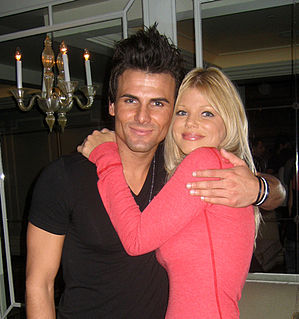A Quote by Barry Gardiner
As the oceans get hotter, corals also become heat-stressed and expel the algae that live on their skeletons, resulting in coral bleaching events that can wipe out entire reefs. This destroys the habitat that supports a quarter of all marine life.
Related Quotes
Coral reefs are under assault. They are rapidly being degraded by human activities. They are over-fished, bombed and poisoned. They are smothered by sediment, and choked by algae growing on nutrient-rich sewage and fertilizer run-off. They are damaged by irresponsible tourism and are being severely stressed by the warming of the world's oceans. Each of these pressures is bad enough in itself, but together, the cocktail is proving lethal.
Coral reefs, the rain forest of the ocean, are home for one-third of the species of the sea. Coral reefs are under stress for several reasons, including warming of the ocean, but especially because of ocean acidification, a direct effect of added carbon dioxide. Ocean life dependent on carbonate shells and skeletons is threatened by dissolution as the ocean becomes more acid.
Are coral reefs growing from the depths of the oceans? ... [The] reply is a simple negative; and a single fact establishes its truth. The reef-forming coral zoophytes, as has been shown, cannot grow at greater depths than 100 or 120 feet; and therefore in seas deeper than this, the formation or growth of reefs over the bottom is impossible.
The more we heat up the planet, the more it costs all of us, not just in money, but in colossal famines, displacements, deaths, and species extinctions, as well as in the loss of some of the things that make this planet a blue-green jewel, including its specialized habitats from the melting Arctic to bleaching coral reefs.
The apparent physical stability of reefs belies an underlying natural turmoil of growth, death and destruction of calcareous organisms. Much like a modern city, reefs are constantly being rebuilt and torn down at the same time. Corals are the bricks, broken pieces of plant and animal skeletons the sand, and algal crusts and chemical cements the mortar. Reef growth is determined by the production, accumulation, and cementation of all this calcareous stuff into solid limestone.
The really valuable thing about documenting coral bleaching is that it is this straight, very direct visual indicator of how hot the oceans are getting. If the temperature of the water passes a certain threshold, the corals turn white. It's that simple. There's nothing natural about the cycle that's going on right now. In 2016, we lost 29 percent of the Great Barrier Reef. So 29 percent of the Great Barrier Reef died in a single year, because the water was hot.
































